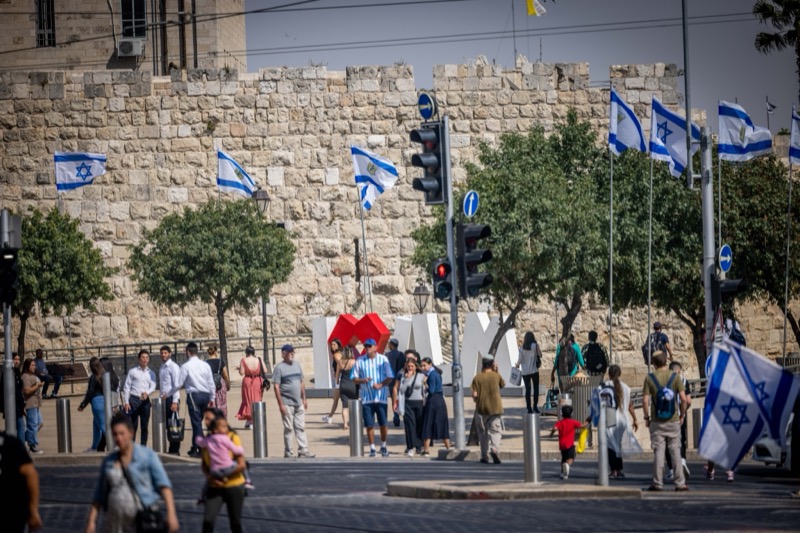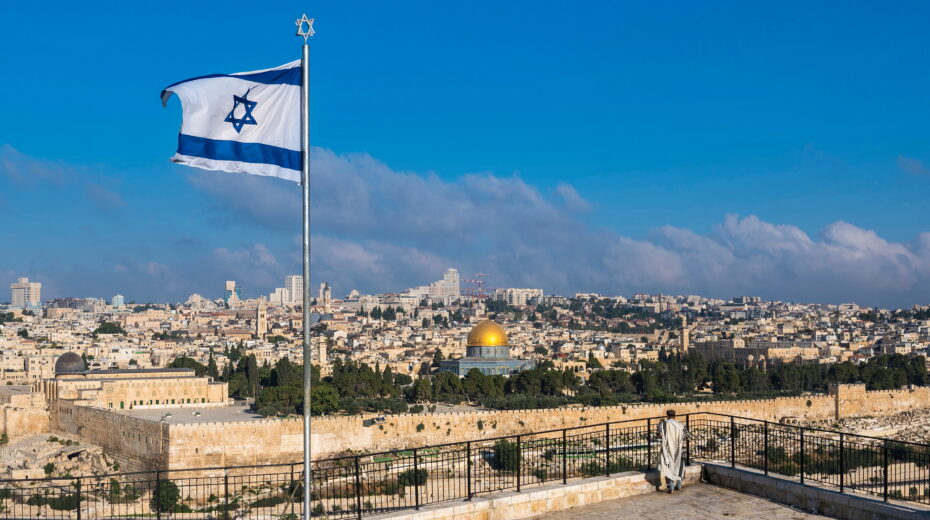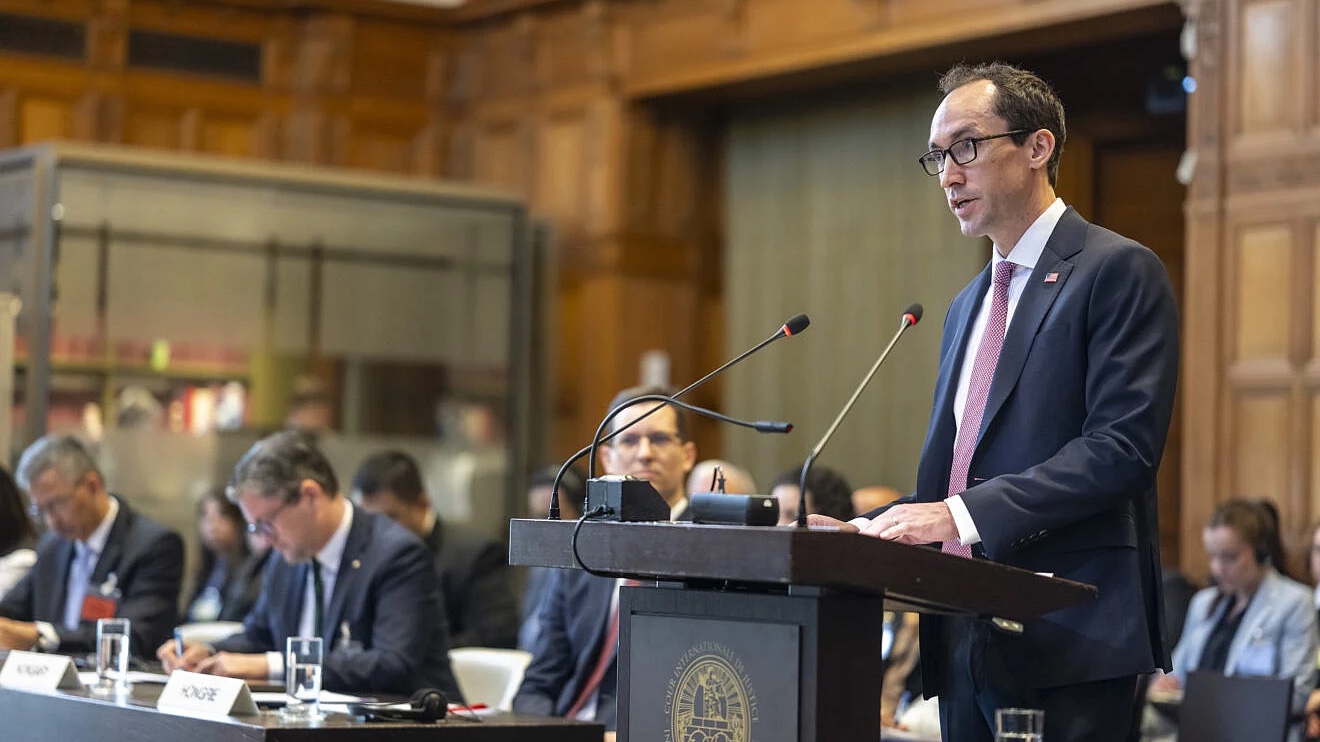Tell me, who among you has ever considered the fact that Jerusalem is not mentioned once in the first five books of the Bible – in the Torah? In a world where every word of the Torah is carefully considered, a daunting question arises: How can it be that the holiest city of the Jewish people – Jerusalem – does not appear by name even once in the Torah? The very city chosen as the site of the Temple, the dwelling place of the divine presence, the City of David, and the center of spiritual and national history, remains unmentioned in the written Torah. Instead, the Torah repeatedly speaks of “the place which the Lord will choose to cause His Name to dwell there.” A seemingly general, vague formulation that leaves the reader in suspense. Where is this chosen place?
A divine riddle – and a gradual revelation. To be honest, I only recently came across this conspicuous silence, as Jerusalem appears hundreds of times in the Bible, just not in the first five books of Moses. To understand this, one must recognize the ideas and backgrounds behind the Bible’s words and sentences.
If the Torah had explicitly stated that Jerusalem was to be the site of the Temple, other tribes would have felt disadvantaged. Why isn’t the holy city located in our territory—like in Dan, Manasseh, or other tribal territories? Jerusalem lies on the border between the tribes of Judah and Benjamin. If the Torah had revealed this, it could have caused jealousy or strife. To avoid premature conflict, God initially left the specific choice of location open to prevent political divisions. Could it be that God learned from Jacob’s “mistake” of giving a coat of many colors to just one son—Joseph—which ultimately led to jealousy within the family?
The choice is often dynamic and not self-evident. The phrase “the place which the Lord will choose” shows that the choice of Jerusalem is not automatic, but depends on the behavior of the people, their progress in history, and their spiritual maturation. Jerusalem is ultimately chosen, but this choice must unfold—it is not a given fact.
The city of Jerusalem is hinted at but not directly named. Although the name “Jerusalem” does not appear in the Torah, there are numerous references. Melchizedek, king of Shalem (Genesis 14)—”Shalem” is part of the later name “Yerushalim.” The binding of Isaac takes place in the “land of Moriah,” the future mountain on which God’s temple will be built. The combination of “Yereh” (יראה), as Abraham says, “on the mountain the Lord will be seen” (ירא + ה’), and “Shalem” (שלם) together result in the word “Yerushalayim” – the city of peace and revelation. Shalem is also related to the word “shalom” – peace. These allusions form a dramatic process of gradual revelation. Jerusalem is not immediately named, but grows out of biblical history, faith, and the spiritual journey.
Jerusalem in the first five books of Moses is not just a geographical location – it is a spiritual destination. A symbol of wholeness and revelation. A place where heaven and earth touch, but also a place to which humanity must strive – in spirit and in action. What is the name of the Hebrew song by Jerusalem guitarist Avner Strauss from the 1980s? “In Jerusalem, the heavens are deeper.” As a teenager, I learned my first guitar chords from Avner in the early 1980s. Jerusalem is not an easy city – complex, but unique in this world. Although I was born in Kibbutz Einat, I have lived in Jerusalem for 47 years – “on the mountain where the Eternal One showed Himself.”
The absence of the name “Jerusalem” in these books teaches us: Holiness does not begin with a place, but with people who are willing to move toward it, to fight for it, to pray for it, and to see in it what God sees. Thus, Jerusalem becomes not only the chosen city, but also the testing city – a city that continually tests our intentions, our faith, and our hopes.

In our generation, the return of Jerusalem to Jewish hands is not just a political or military event, but the living and vibrant fulfillment of ancient prophecies:
“Rejoice with Jerusalem and be glad for her,
all you who love her;
rejoice greatly with her,
all you who mourn over her.“ (Isaiah 66:10)
Especially after two thousand years of dispersion, it was the longing for Jerusalem that preserved our identity. And it was precisely in our return to her that we realized how much she still is “the place which the Lord will choose.” Even though she is not explicitly mentioned in the Torah, she lives in the Jewish soul. Jerusalem always lives between prophecy and reality.
And in this hour, our enemies are fighting to deny the Jewish connection to Jerusalem. They are trying to rewrite history and deny our sovereignty. Yet this very silence of the Torah, the absence of the name “Jerusalem” in the first five books of Moses, resonates right now as an expression of strength. It disappeared only to be chosen anew in each generation.
The prophets foresaw the destination of the journey, for the prophet Zechariah (8:4-5) says:
“Old men and old women will still sit in the streets of Jerusalem… and the streets of the city will be full of boys and girls playing there.”
And at the same time, they gave us the divine promise: “I will not forget you.”
“Can a woman forget her nursing child, that she will not have compassion on the son of her womb? Though she forgets him, I will not forget you.” (Isaiah 49:15)
Even if her name is not written in the Torah, it is inscribed in the hearts of the people.
And today, as the rebuilt Jerusalem connects past and eternity, earth and heaven, reality and prophecy, we live amidst the fruit of that initial concealment that became revelation. Jerusalem is the place “the Lord has chosen,” and this place God will never forget. Jerusalem is more than a city—it is the earthly image of the heavenly city of God (Isaiah, Revelation), a place of divine presence. Psalm 132:13 also says:
“For the Lord has chosen Zion; he has desired her as his dwelling place.”
Let’s be honest—it is a privilege to live in God’s dwelling place!














